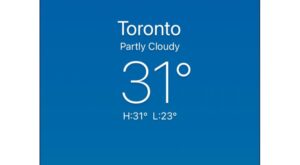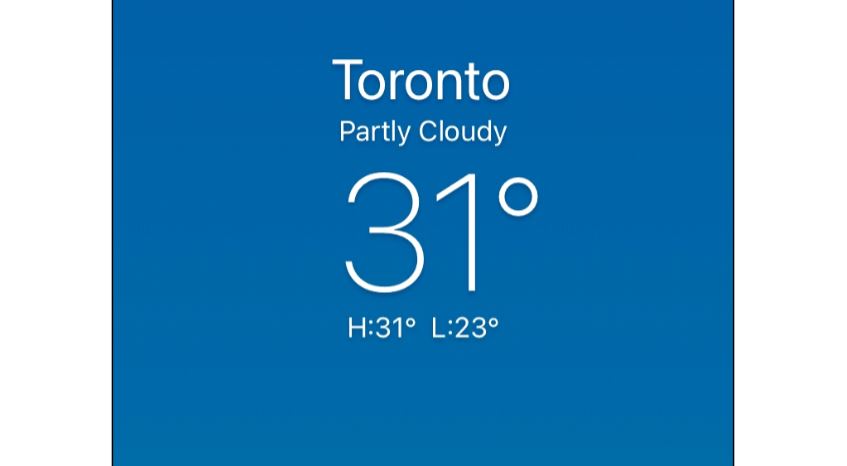Code Red for Humanity

TORONTO – May 12th of this year saw chickens and fishes dying from the heat in Dagupan City, Philippines. The temperature that day registered at 52 Celsius. Early this summer, Lytton, BC, registered a record high of 49.4 C. The following day, wildfire devastated the village. In 2018, two relatives travelled to San Francisco early November to meet up with their cousins who were touring the US. While their plane descended for landing, they could see wildfires from the plane window. When they stepped out of the terminal, smoke was in the air. They had to wear masks. This, in SFO, in November. On their last full day in that city, the cable cars, which give SFO its character, stopped running for the day. The streets of San Francisco were covered in dust and visibility was so low, operating a cable car became risky, given that this is done manually.
The world is heating up. Climate change is not a future event. It is here now and is wreaking global havoc, caused by human behaviour. In 2006, former US Vice President Al Gore presented a documentary on the environment and how humans are contributing to its deterioration. “The Inconvenient Truth” issued an urgent warning to save this planet. That was 17 years ago. We did not heed this call. Now, we have “Code Red for Humanity”. In the US, 58 million people were under excessive heat warnings, the highest level of heat alert, during the weekend of August 14, 2021, according to CNN News dated August 13, 2021. Residents of NYC, Philadelphia, St. Louis, Kansas City, Seattle and Portland, Oregon, were specifically mentioned in this heat alert. Thirteen months ago, the forests of Siberia – that’s right, Siberia – started to burn. ABC News’ Patrick Reevel reported that Siberian wildfires caused by extreme heat and record droughts have morphed into a bigger wildfire than all the combined wildfires around the world. This, I find shocking since I’ve always thought of Siberia as a frigid place, with temps much colder than Canada’s north.
Thirty years ago, an “Earth Summit” was held in Rio de Janeiro. There, Intergovernmental Panel on Climate Change (IPCC) assessed the effects of carbon dioxide and other greenhouse gases on the atmosphere. The conclusions arrived at were speculations , eg, the chance of “natural climate variability”, “episodes of high temperatures” occurring with more frequency, reports Washington Post’s Eugene Robinson in his August 9, 2021 column. A 6th IPCC report was released early this month and its language was direct, harsh. The message was dire: Code Red for Humanity. It stated, “It is unequivocal that human influence has warmed the atmosphere, ocean and land.
Human-induced climate is already affecting many weather and climate extremes in every region across the globe.” The Associated Press’ Seth Borensen’s article of August 9th, 2021 on the UN climate crisis discusses the state of this planet in the 21st century with his “Nowhere to run, nowhere to hide” frightening report. The 2015 Paris Accord set 1.5 Celsius as the limit for global warming projection for the next 15 years, yet clearly, this is not happening. In the 6 years that followed this accord, the world has warmed nearly 1.1 Celsius. Alarming reality. Co-chair Valerie Masson-Delmonte states “we can avoid further levels of warming by acting on greenhouse gas emissions”. This will most certainly take front and centre in the coming UN Conference on Climate Change this November in Scotland.
Undoubtedly, we will have to adapt to everything that’s happening right now in the world for they’re here to stay. However, we can slow down global warming through change of attitudes and taking responsibility for the care of the environment. Switching from fossil fuel dependence to some other natural source like the sun or the wind is a monumental task but it can be done. Solar panels now fuel bike share and parking meter terminals. Some dwellings in Toronto already have solar panels facing the morning sun. And, the most visible windmill has become a landmark of the Canadian National Exhibition. It’s my hope that more of these natural source of energy equipment increase in Canada.
Carbon dioxide emissions have to be curtailed but how do you convince the biggest emitter with the biggest population to rein in its emissions when it has a reputation for not being forthcoming with the viruses that originated there, notably the COVID 19 which has caused this pandemic and has cost lives.
The slogan “Waste not, want not” which originally meant not wasting food, making it available for the coming days, now means something else to me: get only what you need, not want, and do it in an austere manner to lessen fossil fuel emissions.



